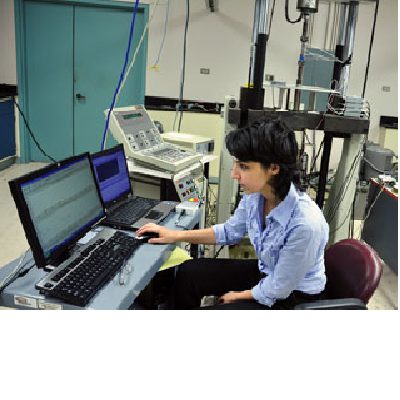Welding often occurs late in the manufacturing process, but it is still a crucial part of the procedure. A defective weld can have significant negative impacts, but consistent and accurate fabrication in industries like aerospace, automotive, energy, shipbuilding, and many more is important to keep project costs low and ensure they are completed on time.
“Real time process control is critical for avoiding these defects, which include lack of penetration, undercutting, slag entrapment, crater cracks, and burn through,” said Associate Professor Didem Ozevin, of the Department of Civil and Materials Engineering (CME).
Ozevin is leading a team of UIC researchers and industrial partners whose research will address the “business problem” of weld quality assurance by developing a combined real-time diagnosis, decision, and control system based on multi-sensor fusion and machine learning methodology.
“The multi-sensor platform will incorporate miniaturized probes and control electronics into an autonomous and miniaturized robotic system that will carry the probes and micro-controller to collect and analyze the data, and to track the path of the weld electrode during the process,” said Ozevin, who is the director of the Non-Destructive Structures laboratory at UIC. “Since local features can impact welding quality, a high-resolution image of the welding area will be drawn out.”
The sensor system forming the nondestructive evaluation of the welding process will encompass thermal imaging, acoustic sensing and ultrasonics. The data analytics representing the weld state and abnormalities in the process will be extracted from the sensor outputs as well as the parameters related to welding operation including voltage, current intensity, weld speed, and temperature.
The machine learning approach will analyze the data analytics during the process, and feed into the welding process to correct the errors in the welding parameters. The data will be stored in a cloud-base station to compute performance analytics of the welding and for daily recalibration of the control algorithm.
“The major technology innovation of the proposed research is that a welding machine will be able to make intelligent decisions in response to process variables, disturbances, and tool deteriorations without any need of specialized engineering expertise as the decision will be automated using the cloud database,” she said.
Ozevin is the principal investigator of a $402,000 grant from UI-LABS DMDII (total funding $1,101,846 with 50% cost sharing), which is making the two-year project research possible. She is teaming up with UIC researchers Ernesto Indacochea and Sybil Derrible, both of CME, Brian Ziebart, of UIC’s Department of Computer Science, and industrial partners Industrial Measurement Systems and Illinois Tool Works.
Learn more about Professor Ozevin and her research at Ozevin Profile.
